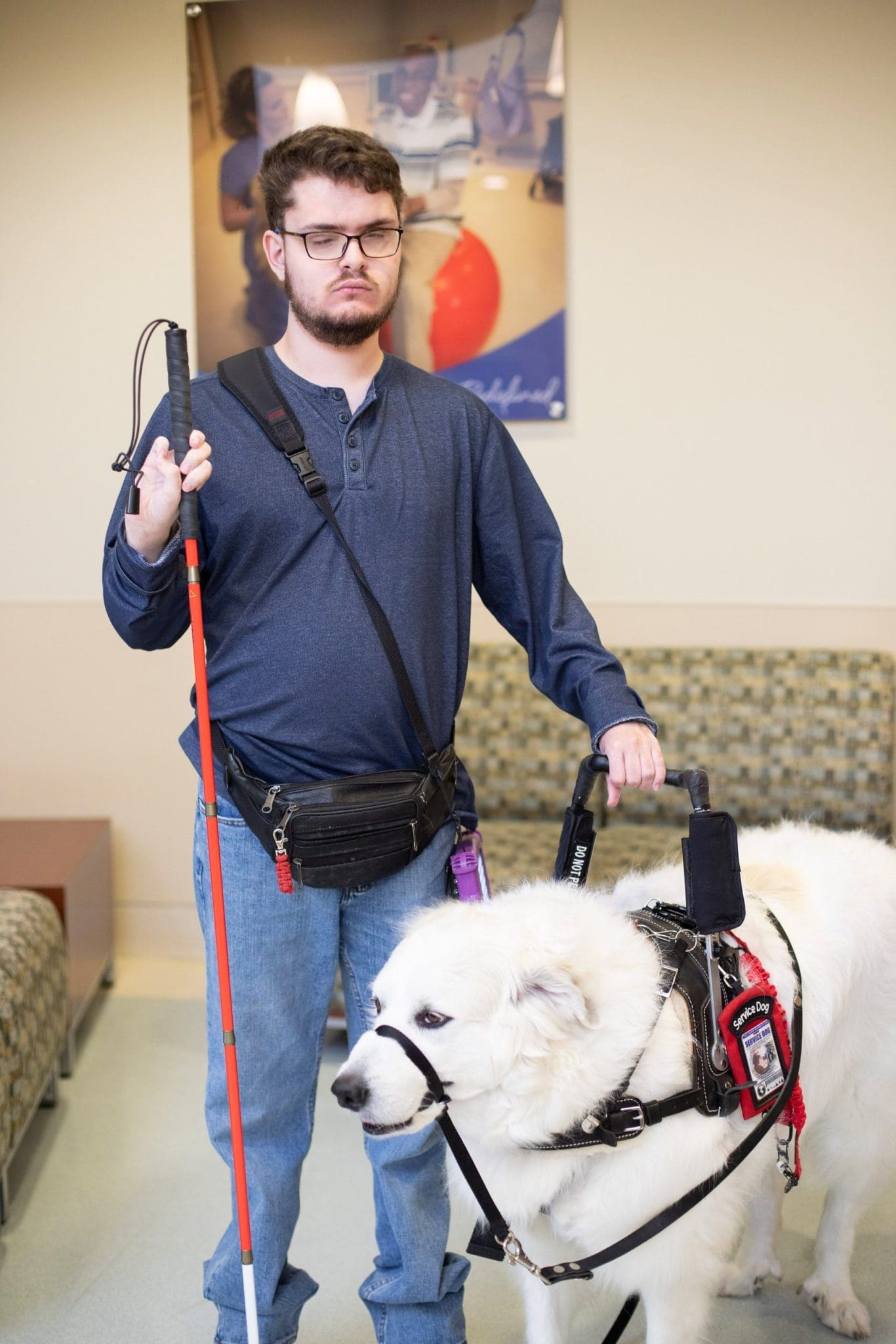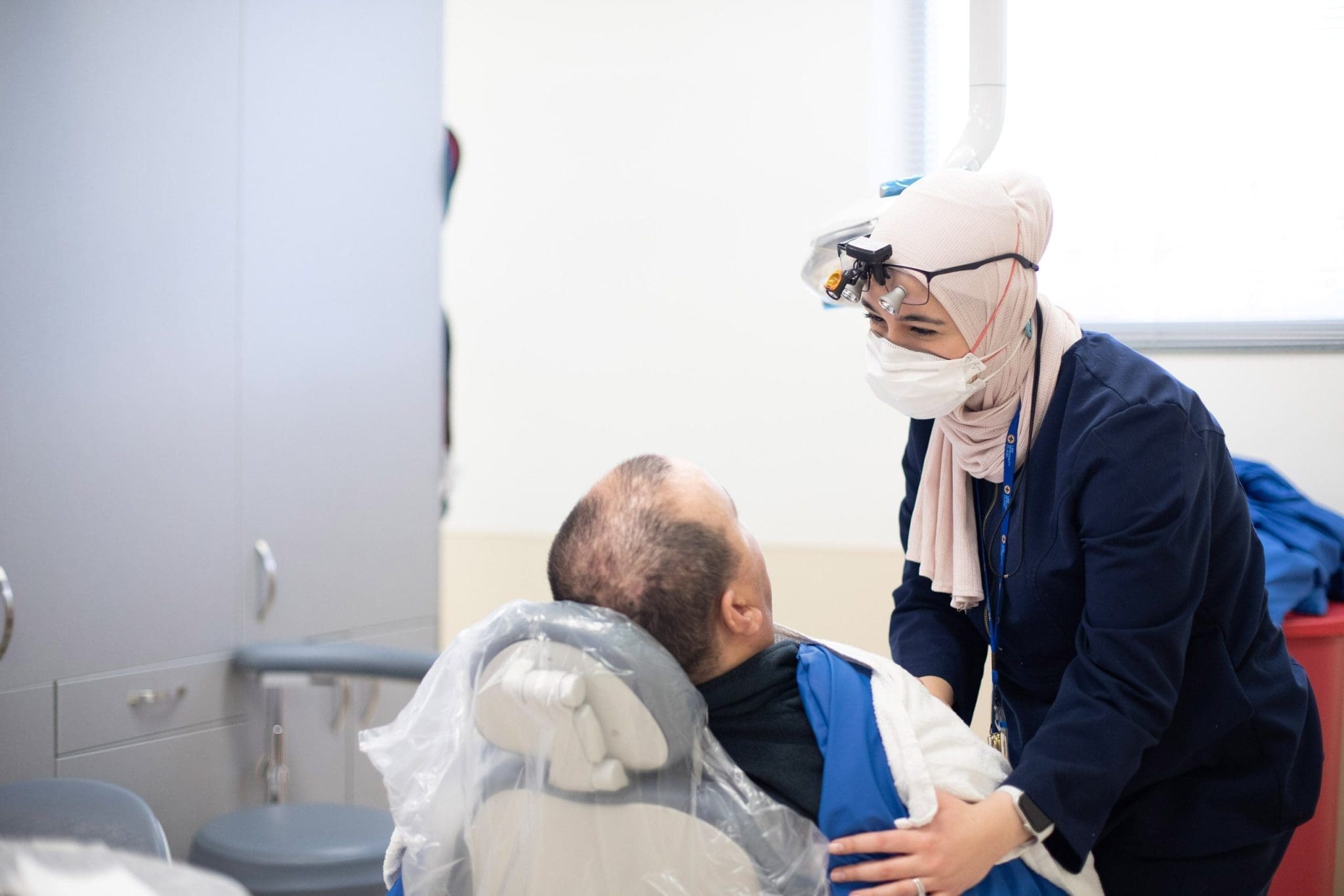© 2025 Kramer Davis Health. All Rights Reserved.
(ABA) Applied Behavioral Health Services for Individuals with IDD
Improving lives through evidence-based behavioral interventions.
ABA, as a clinical discipline, focuses on developing a socially significant, individualized, evidence-based behavioral intervention that improves the life of the individual. The Kramer Davis behavior analyst will help guide the patient through their clinic journey and provides recommendations, strategies, and training that fits the individual’s needs.





Our behavioral services focus on individualized, comprehensive assessments that lead to meaningful,data-driven interventions.
Behavior is a form of communication
In behavior analysis, we view all behaviors as a potential form of communication. Sometimes, when words cannot be used to communicate with others, a physical behavior may be used to get a point across. Our patients may engage in these behaviors to communicate if they want something tangible, if they’re seeking attention from others, if they find an environment unpleasant or overwhelming, or if they are responding to sensory input that may not be evident to another individual. During the patient’s journey through the Kramer Davis clinic, our behavior analysts work with the individual’s team to find the “why” behind the behavior that may interfere with the patient’s quality of life. We also try to identify those things that can positively motivate and reinforces behaviors, or teach new skills, that promote independence and maximize an individual’s potential. All this is done in-clinic, through observation, patient and caregiver interviews, and a review of home/community data.
Collaborating to Solve Challenging Behaviors
Patients with IDD who find themselves in a challenging situation will often be referred to the Kramer Davis Clinic from multiple sources, including residential facilities, patients’ families, community-based primary care physicians, dentists and specialists, and hospitals and clinics. In these cases, prompt (sometimes crisis) intervention and management is needed. In these situations, the Kramer Davis behavioral and crisis team will often be asked to simply increase the dosage of a behavioral medication in the mistaken belief that this intervention alone will “cure” the problem. This is almost never the case. In fact, the lives of most patients in challenging and crisis situations will improve when a previously undiagnosed medical or dental problem is discovered, or when changes are made in areas such as physical exercise, environmental factors, social activity. In both crisis and non-crisis situations, our behavioral team will collaborate with multiple disciplines both within the clinic and with community-based support sources. This collaborative approach often helps to resolve challenges and to provide the patient with the quality of life they deserve.
Advocating for our patients
Our therapists and clinicians are not just healthcare providers, we are advocates for our patients. There isn’t only one particular story or just one patient who has made an impact on our lives – it’s every patient, every small success, every caregiver going above and beyond…it’s every story. We are better every day because of our amazing patients.
Welcome to Kramer Davis, we’re so glad you’re here.
Upon entering the clinic, patients and caregivers are welcomed in a calm, clean environment. Our providers introduce themselves and engage with both the patient & caregiver and find out the details pertinent to the patient’s lifestyle. We use that information to modify the space to meet their particular sensory needs.
Getting to know you.
For the first visit, we are focused on getting to know our new patient and how they react to the environment and what they do and don’t like. If we find out our patient doesn’t like glasses, or that they are passionate about tacos, those notes may make it into our files for later! We want to establish a relationship with you, and help you to be at ease.
Intentionally & effectively communicating every step of the way.
Throughout each appointment, clinicians and staff ensure that we communicate each step in a way that our patients can understand (verbal, visual, pictures, communication devices, etc). We discuss specific questions and concerns the patient and family/caregiver may have. Our journey begins with a conversation.
Comprehensive Assessment
New patients can expect the first appointment to consist of a comprehensive assessment with both patient and caregiver. Record review will be conducted prior to the appointment by the Board Certified Behavior Analyst. Providing all requested documents prior to the first appointment will help with the direction of the individualized assessment and future positive intervention plans.
Going above and beyond your greatest expectations
As you leave, we hope you feel relief. You take a deep breath. The pressure is alleviated, and you know that you have a whole team here working together to coordinate the best possible care and outcome. You will feel equipped to think like a behavior detective, taking data at home, in the community, and in other environments. With this, we can determine the function of certain behaviors and guide our individualized treatment recommendations. You are not alone. The medical professionals, psychiatrists, mental health professionals, dentists, therapists, and specialists are all working together with you! You came to the right place.
Kramer Davis Virtual Tour
4:54 duration
Frequently Asked Questions
Our team answers some of our most frequently asked questions in the area of behavioral health for those with IDD.

What questions are involved in a caregiver interview?
After we obtain the answers to the following questions we add them to a simple data collection system to be utilized outside the clinic. The team members at home become our Behavior Detectives, assisting with determining the “why” of a particular behavior, which helps guide the development of individualized treatment recommendations.
- We ask difficult questions that usually will have no right or wrong answers. We want to know:
- What are the behaviors that interfere with the patient’s quality of life?
- What is this individual attempting to communicate with their parent, the caregiver, or the clinic staff?
- What makes these behaviors worse, and what makes them better? Can the individual turn these behaviors on or off by themself
What is ABA?
Applied Behavior Analysis is a natural science that evaluates behavior-environment relations that are socially significant. Practitioners of ABA are board-certified or licensed professionals who observe, measure, and change behaviors that are socially significant and sensitive to the rules of the local community. Evidence-based methods are utilized, and behavioral data is used as a tool for decision-making. Each behavior-change strategy is monitored closely for effectiveness. ABA procedures must be explicitly defined and provided consistently to enable meaningful behavior change.
What does ABA look like in a clinic?
Visits begin with a comprehensive assessment to determine the individual’s needs. This includes but is not limited to assessing functional skill levels, environmental factors leading to challenges/successes, life goals, and barriers to community engagement. Individualized treatment plans will be created, trained, and utilized throughout their clinic journey.
Please Note: Services may vary for each Kramer Davis clinic location.